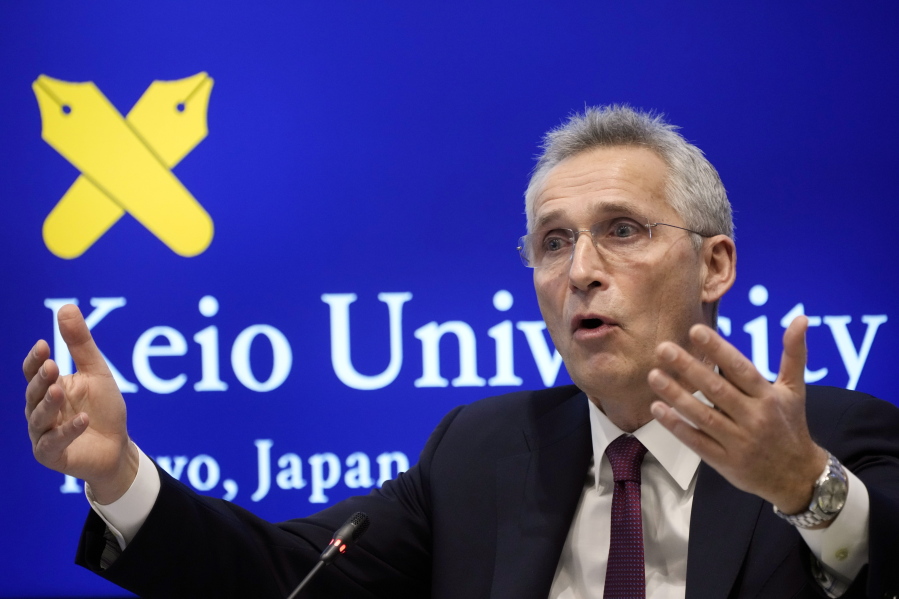TOKYO — China’s growing assertiveness and collaboration with Russia pose a challenge not only to Asia but also to Europe, NATO Secretary-General Jens Stoltenberg said Wednesday as he sought stronger cooperation and more “friends” for NATO in the Indo-Pacific region.
Stoltenberg said China is increasingly investing in nuclear weapons and long-range missiles without providing transparency or engaging in meaningful dialogue on arms control for atomic weapons, while escalating coercion of its neighbors and threats against Taiwan, the self-ruled island it claims as its own territory.
“The fact that Russia and China are coming closer and the significant investments by China and new advanced military capabilities just underlines that China poses a threat, poses a challenge also to NATO allies,” Stoltenberg told an audience at Keio University in Tokyo. “Security is not regional but global.”
“NATO needs to make sure we have friends,” he said. “It is important to work more closely with our partners in the Indo-Pacific.”
China is increasingly working with Russia and they lead an “authoritarian pushback” against the rules-based, open and democratic international order, he said.
Stoltenberg said NATO does not regard China as an adversary or seek confrontation, and that the alliance will continue to engage with China in areas of common interest, such as climate change.
Chinese Foreign Ministry spokesperson Mao Ning defended China as “a force for regional and global peace and stability” and criticized NATO for labeling China a threat and for expanding its military ties to Asia.
“NATO has constantly sought to reach beyond its traditional defense zone and scope, strengthen military and security ties with Asia Pacific countries and played up China’s threats,” Mao said. “I would like to stress that the Asia-Pacific is not a battlefield for the geopolitical contest and does not welcome the Cold War mentality and bloc confrontation.”
Stoltenberg and Japanese Prime Minister Fumio Kishida held talks Tuesday and agreed to step up their partnership in security in cyberspace, space, defense and other areas.
NATO is also strengthening “practical cooperation” with Australia, New Zealand and South Korea in maritime cybersecurity and other areas and stepping up participation of their leaders and ministers in NATO meetings, he said.
Kishida on Tuesday announced Japan’s plans to open an office at NATO.
Japan, already a close U.S. ally, has in recent years expanded its military ties with other Indo-Pacific nations as well as with Britain, Europe and NATO amid growing security threats from China and North Korea.



